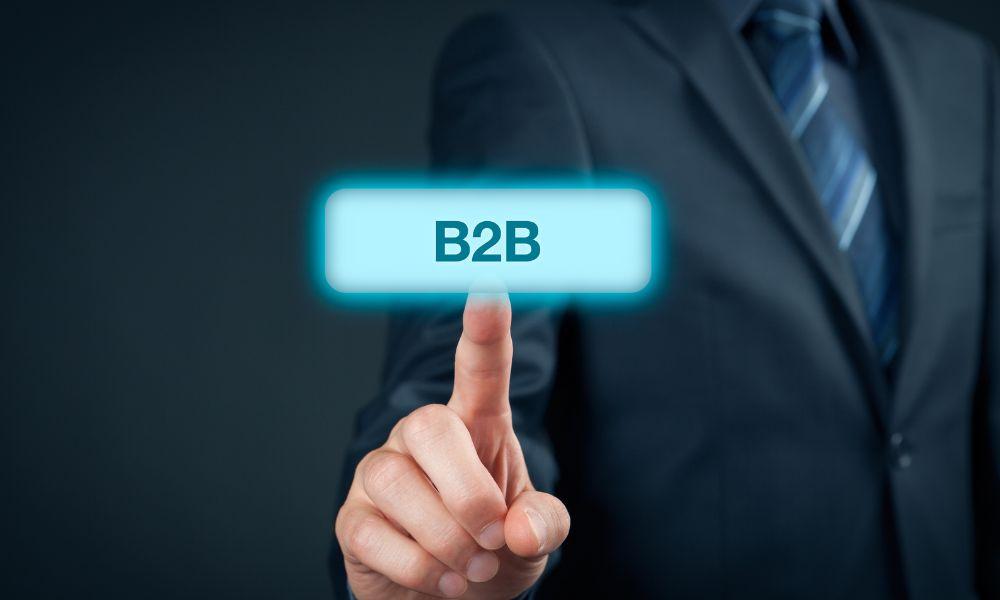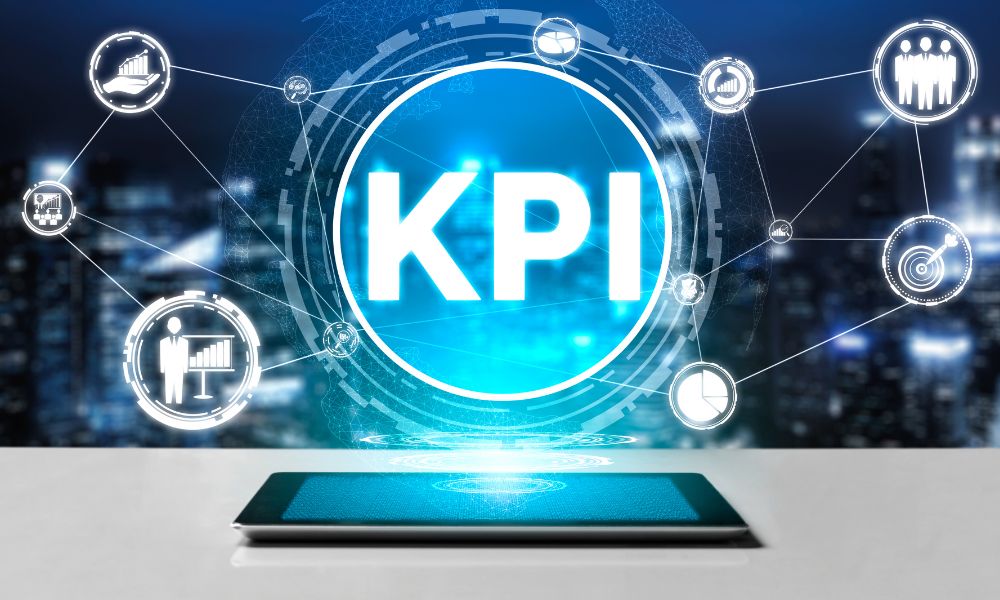Building a B2B marketplace in Dubai requires a strategic approach tailored to the country’s unique cultural and business landscape. Thorough market research can help you gain insight into your target audience, identify demand, and deliver the right products or services.
Setting clear business objectives and structuring your business model that will guide your operations and competitive strategy. Additionally, selecting the right technology stack and focusing on user experience, security, and data protection will ensure a robust platform.
Effective marketing, local partnerships, and adaptive pricing strategies will help you penetrate the market. At the same time, continuous improvement and monitoring of key performance indicators will sustain your growth and success.
Planning Your B2B Marketplace
Defining Your Target Audience
Building a successful B2B marketplace in Dubai starts with getting to know your target audience. The UAE market is unique with its cultural diversity and dynamic lifestyle.
Thorough market research is your friend here. It’ll help you understand your potential customers’ needs, interests, and expectations.
With this knowledge, you’ll be able to pinpoint the types of products or services that are in demand. You’ll also be able to figure out the competencies needed to deliver these services.
Establishing Business Objectives
Once you’ve clearly identified your target audience, it’s time to set your business objectives. This means outlining your business case, operating model, and competitive risks.
You’ll need to answer key questions. These include who should be part of your marketplace ecosystem, how customer journeys will be designed, and how data will be governed.
You’ll also need to think about how to minimise friction among competitors.
Structuring Your Business Model
There are two main B2B models to consider. You can either run your own marketplace (first-party marketplace) or sell products on another operator’s marketplace (third-party marketplace).
Each model has its own pros and cons. The choice depends on your business’s resources and ability to drive demand.
Running your own marketplace gives you control over your brand and customer data. However, attracting customers and managing the infrastructure require more resources and effort. Selling on another operator’s marketplace can give you access to a large audience with minimal effort. But it might mean losing control of your brand and customer data.
Setting Short-term and Long-term Goals
After defining your business model, it is essential to set both short-term and long-term goals. This involves creating a digital infrastructure for your marketplace and identifying potential partners.
You’ll also need to set up governance structures and define ways of working. Additionally, you’ll need to create a system for managing providers and their products and services. A payment system for customers to transact is also necessary.
In the short term, focus on launching a pilot version of your marketplace. This involves creating a prototype, testing it with real customers, and iterating based on the data gathered to optimise the user experience.
You should also determine your marketplace’s Key Performance Indicators (KPIs) and monitor them closely to identify areas for improvement.
Your long-term goals should include:
- Expanding your marketplace.
- Aiming to attract more sellers and buyers.
- Continuously improving the user experience.
As your marketplace matures, expect your team structures to evolve. They’ll need to adapt to support your business’s changing needs.
Developing the Marketplace Platform
Choosing the Right Technology Stack
A robust technology stack is essential to build a B2B marketplace in Dubai. It must support the intricate needs of B2B transactions, including account-driven payments, segmented pricing, and secure user authentication.
The technology should facilitate creating and managing corporate accounts for multiple buyers within an organisation. Flexibility is key, allowing the stack to adapt to evolving buying behaviours and market trends.
Essential Features and Functionalities
A successful B2B marketplace must cater to both buyers and sellers. It should feature advanced search capabilities for easy product discovery and tools that personalise the experience to drive upsells and cross-sells.
The platform should ensure a smooth ordering process, including a shopping cart for quick and easy transactions.
Additionally, it should offer account-level quotes, enabling buyers to manage the quoting process. Vendors should have control over their company information, product listings, and pricing. The platform must support workflows restricting buyers to approved vendors and allowing price comparisons across multiple suppliers.
User Experience (UX) Design Considerations
The UX of a B2B marketplace should be intuitive and user-friendly. Effective navigation, logical product categorisation, and personalised dashboards can boost user engagement. Detailed product information, interactive catalogues, and real-time support enhance the overall experience.
Understanding user behaviour, needs, and preferences is essential for designing clear user pathways. Aim to minimise the steps required to complete tasks and use visual cues to assist decision-making. The design should be responsive, adjusting to different screen sizes and orientations.
Security Measures and Data Protection
Security is paramount for any B2B marketplace. Centralised management of user logins through an administration console is necessary. This console should assign account hierarchies and define roles and permissions.
The platform should integrate with existing systems like CRM and ERP to enable seamless data exchange and automation, enhance user experience, and safeguard sensitive information.
Launch Strategies for Market Penetration
Marketing and Branding Strategies
Dubai, renowned for its strategic location and robust infrastructure, is a fertile ground for B2B businesses. To penetrate this market, you’ll need a tailored marketing and branding strategy that resonates with the local audience while preserving your brand identity.
Conducting thorough market research helps you understand the local business landscape. This includes determining the market size, consumer preferences, and competitive analysis. Such research will help you spot lucrative opportunities and tailor your offerings accordingly.
Localising content, language, and cultural sensitivity are also key aspects to consider. Respecting local cultural norms, customs, and business etiquette is key to building successful business relationships in Dubai.
A strong brand presence sets B2B businesses apart in Dubai’s competitive market. Establishing brand identity, values, and messaging resonates with target audiences and fosters brand loyalty.
Partnership and Collaboration Opportunities
Working with established local entities, such as distributors, suppliers, or strategic partners, can provide valuable market insights. It also offers network access and credibility. Forming partnerships can help you navigate regulatory requirements and build trust with local customers.
Building strong connections with key stakeholders, including government authorities, industry associations, and potential clients, is paramount in the Dubai business ecosystem.
Consider establishing a legal entity in Dubai, depending on the nature of your business and long-term objectives. B2B businesses entering the Dubai market should be aware of legal considerations. These include ownership restrictions, licensing procedures, taxation, labour laws, and intellectual property protection.
Pricing Strategies and Revenue Models
Dubai’s free zones offer attractive incentives and streamlined processes for foreign businesses. These include 100% ownership, tax exemptions, and simplified regulations. Free zones provide an ideal environment for B2B enterprises to thrive.
However, you’ll need proactive risk management strategies to mitigate the impact of economic fluctuations. Staying on top of evolving regulations and compliance requirements ensures seamless adherence and mitigates legal risks.
Pilot Testing and Feedback Implementation
Before fully launching your B2B marketplace in Dubai, it’s advisable to conduct pilot testing. This allows you to gather feedback and make necessary adjustments to your business model, pricing strategy, or product offerings.
Addressing cultural and language barriers fosters effective communication and trust in B2B relationships. Cultural sensitivity is paramount when doing business in Dubai. It fosters trust, enhances communication, and strengthens relationships with clients and partners from diverse cultural backgrounds.
Sustaining and Growing Your Marketplace
Monitoring Key Performance Indicators (KPIs)
Maintaining and expanding your B2B marketplace requires close attention to KPIs, which provide insights into your business’s ongoing performance.
For instance, the Net Promoter Score (NPS) can help gauge customer satisfaction. Other essential KPIs include customer retention rate, customer resolution time, and Gross Merchandise Value (GMV).
Metrics like Customer Acquisition Cost (CAC) and Average Order Value (AOV) are also critical. They reveal effective strategies and areas needing improvement, enabling data-driven decisions to enhance your marketplace.
Customer Support and Relationship Management
Strong connections with buyers and sellers are invaluable, especially as transaction volumes increase. Building trust and loyalty enhances your marketplace’s reputation.
Providing personalised service and robust after-sales support is essential. Proactive communication and multiple interaction channels can lead to long-term relationships and upsell opportunities.
Training support staff to be well-versed in your products, services, and processes ensures effective customer assistance.
Continuous Improvement and Scaling Strategies
To scale your B2B marketplace, implement growth strategies like market expansion, product diversification, and strategic partnerships. Focus on resource efficiency to enhance productivity and profitability.
Gathering feedback from customers is beneficial. Establishing a feedback loop where sales reps regularly communicate with product, marketing, and customer service teams ensures continuous improvement and swift issue resolution.
Adapting to Market Trends and Technological Advancements
Staying competitive in the B2B landscape requires awareness of current trends and future shifts. Understanding your buyers, who prioritise margins and quality, is essential.
Effective pricing strategies can be advantageous, such as volume discounts and flexible pricing based on market trends. Leveraging technology like automation and AI can streamline customer experiences and provide a competitive edge.
Sustaining and Growing Your Marketplace
Monitoring Key Performance Indicators (KPIs)
In the fast-paced B2B marketplace, tracking KPIs is beneficial. These metrics let you monitor progress towards your business goals. They provide essential information, such as your marketplace’s inventory value and anticipated revenue from a seller.
Additional KPIs such as monthly active users, bounce rate, time spent on site, and conversion rate can help you gauge your marketplace’s growth and customer engagement levels.
Customer Support and Relationship Management
Customer experience is a major differentiator in the B2B space. To create an exceptional experience, you’ll need to understand the unique needs and pressures of each buyer. You can do this by using the wealth of data available about the customer’s industry, geographic focus, and future expectations.
Post-purchase support is also important in building long-term relationships. This involves keeping in touch with customers and understanding their evolving needs as their company grows and changes. Speed is a key factor in customer service, and resources like knowledge bases, chatbots, and community forums can help customers find solutions quickly.
Continuous Improvement and Scaling Strategies
Continuous improvement is vital to sustaining and growing your B2B marketplace. You can achieve this by actively seeking customer feedback and acting on it. Showing support to the company after making a sale also demonstrates your commitment to continuous improvement.
Scaling a B2B marketplace involves:
- Getting into your buyer’s mindset.
- Leveraging technology.
- Implementing effective pricing, growth, and sales strategies.
Focusing on sustainability and strong customer relationships is important for future-proofing your business for consistent growth and profitability.
Adapting to Market Trends and Technological Advancements
The B2B marketplace is becoming increasingly competitive. You’ll need to adapt to market trends and technological advancements to stay ahead. This includes using the same technology that customers use to find online information. Automation, AI, and machine learning can create a more seamless customer experience and provide a competitive edge.
B2B companies should also focus on proactively filling an advisory role to change the perception of sales reps being too pushy. Offering advice can alleviate customers’ purchase fear and anxiety and create a long-term, trusting relationship. The best customer environment is simple, intuitive, and flexible. B2B companies need to simplify their offerings to what matters most to the customers.
Driving Success in the Dubai B2B Marketplace
Establishing a successful B2B marketplace in Dubai can be quite an endeavour. It requires an extensive understanding of your audience, meticulous planning, utilisation of robust technology, and a well-thought-out launch strategy.
Continuous monitoring of key performance indicators and ensuring top-notch customer support should be prioritised. Being alert to market trends and technological advancements will keep your platform relevant and competitive.
Remember, your significant allies in this journey are your strong bond with your audience, authenticity in your services, a focus on continuous improvement, and a scalable model. With these strategies at your helm, your venture in the Dubai B2B marketplace is well-paced for growth and profitability. Embrace the challenge and prepare to make your mark in this dynamic market.



